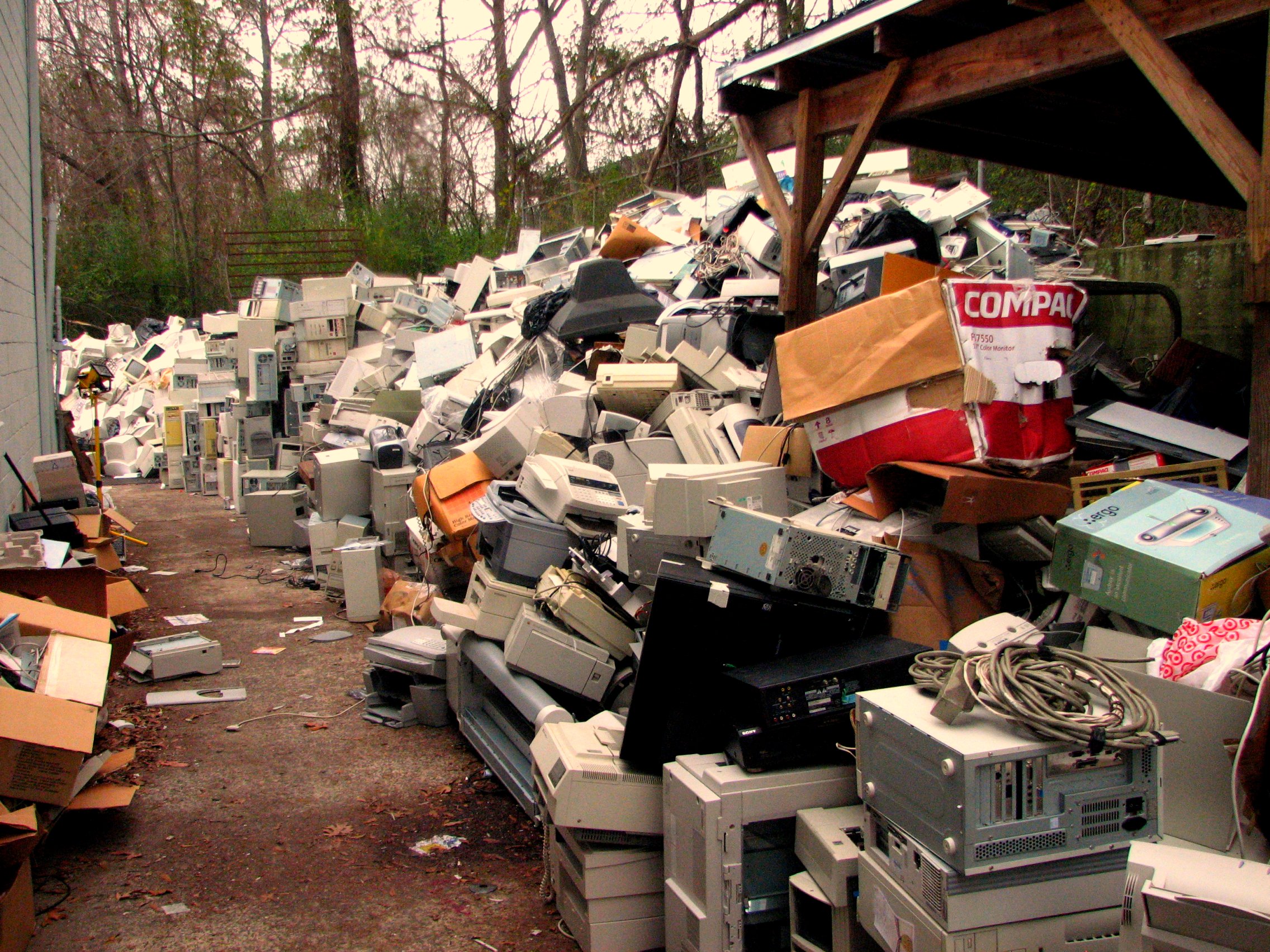Mining for gold has traditionally been thought of as digging tunnels into the earth, finding the rare metal, and then bringing it up to the surface for processing. With this being the electronics age, however, this might no longer be the only method of actual gold mining. Tons and tons of old gadgets and gizmos and being thrown out each year and according to a recent study, mining them could be worth a lot of money.
The practice of digging up gold out of plastic and metal instead of dirt and rocks is called Urban Mining. According to a recently published research into the practice, it’s a reasonably economical idea, provided the facilities and government support is there. Aside from the financial incentives, there’s also the matter of curbing electronic waste or e-waste in the modern age.
“In this work, we demonstrate utilizing real cost data from e-waste processors in China that ingots of pure copper and gold could be recovered from e-waste streams at costs that are comparable to those encountered in virgin mining of ores,” the paper reads.
“Our results are confined to the cases of copper and gold extracted and processed from e-waste streams made up of recycled TV sets, but these results indicate a trend and potential if applied across a broader range of e-waste sources and metals extracted. If these results can be extended to other metals and countries, they promise to have positive impact on waste disposal and mining activities globally, as the circular economy comes to displace linear economic pathways.”
Based on the results of the study, it seems Urban Mining turns out to be 13 times less expensive than actual mining, Futurism notes. This is a staggering development, especially when considering that in just one million electronic devices being thrown away, an estimated 75 pounds of gold can be mined. 35,000 pounds of copper and 772 pounds of silver can be obtained from the same pile, as well.



 Elon Musk’s SpaceX Acquires xAI in Historic Deal Uniting Space and Artificial Intelligence
Elon Musk’s SpaceX Acquires xAI in Historic Deal Uniting Space and Artificial Intelligence  Nintendo Shares Slide After Earnings Miss Raises Switch 2 Margin Concerns
Nintendo Shares Slide After Earnings Miss Raises Switch 2 Margin Concerns  TSMC Eyes 3nm Chip Production in Japan with $17 Billion Kumamoto Investment
TSMC Eyes 3nm Chip Production in Japan with $17 Billion Kumamoto Investment  Nvidia CEO Jensen Huang Says AI Investment Boom Is Just Beginning as NVDA Shares Surge
Nvidia CEO Jensen Huang Says AI Investment Boom Is Just Beginning as NVDA Shares Surge  SoftBank Shares Slide After Arm Earnings Miss Fuels Tech Stock Sell-Off
SoftBank Shares Slide After Arm Earnings Miss Fuels Tech Stock Sell-Off  Amazon Stock Rebounds After Earnings as $200B Capex Plan Sparks AI Spending Debate
Amazon Stock Rebounds After Earnings as $200B Capex Plan Sparks AI Spending Debate  Alphabet’s Massive AI Spending Surge Signals Confidence in Google’s Growth Engine
Alphabet’s Massive AI Spending Surge Signals Confidence in Google’s Growth Engine  SpaceX Seeks FCC Approval for Massive Solar-Powered Satellite Network to Support AI Data Centers
SpaceX Seeks FCC Approval for Massive Solar-Powered Satellite Network to Support AI Data Centers  SoftBank and Intel Partner to Develop Next-Generation Memory Chips for AI Data Centers
SoftBank and Intel Partner to Develop Next-Generation Memory Chips for AI Data Centers  Nvidia Nears $20 Billion OpenAI Investment as AI Funding Race Intensifies
Nvidia Nears $20 Billion OpenAI Investment as AI Funding Race Intensifies  Global PC Makers Eye Chinese Memory Chip Suppliers Amid Ongoing Supply Crunch
Global PC Makers Eye Chinese Memory Chip Suppliers Amid Ongoing Supply Crunch  Anthropic Eyes $350 Billion Valuation as AI Funding and Share Sale Accelerate
Anthropic Eyes $350 Billion Valuation as AI Funding and Share Sale Accelerate  Sam Altman Reaffirms OpenAI’s Long-Term Commitment to NVIDIA Amid Chip Report
Sam Altman Reaffirms OpenAI’s Long-Term Commitment to NVIDIA Amid Chip Report  SpaceX Updates Starlink Privacy Policy to Allow AI Training as xAI Merger Talks and IPO Loom
SpaceX Updates Starlink Privacy Policy to Allow AI Training as xAI Merger Talks and IPO Loom  Nvidia Confirms Major OpenAI Investment Amid AI Funding Race
Nvidia Confirms Major OpenAI Investment Amid AI Funding Race 































